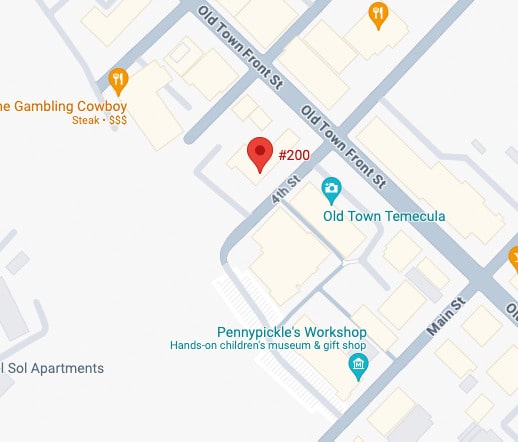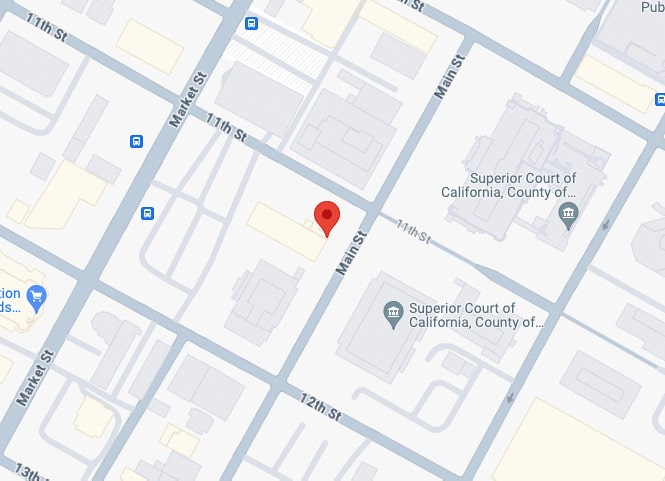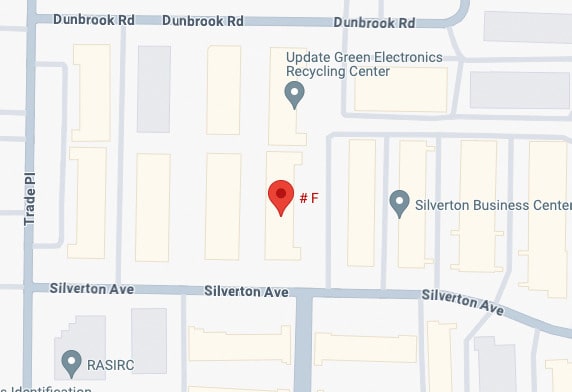Bail is an excellent opportunity for a defendant to get a pretrial release after an arrest. It entails paying a particular amount according to the bail schedule and the details of your case to incentivize your court appearances. Bail is granted to eligible defendants, particularly those who will likely appear during all court hearings and are not a safety risk to their community. Although bail is essential to ensure fairness in the criminal justice system and to avoid congestion in local detention facilities, some reforms are necessary to make it accessible to all defendants, not just those with the financial ability to provide the incentive.
While the issue of bail has existed for a long time, it has largely benefited individuals and families with the financial ability to provide the incentive needed by the court for freedom before trial. This is unfair for defendants who are eligible for bail but have no choice but to remain in jail longer than they should. The recent legislation on bail practices is geared towards ensuring equality and fairness in granting bail to defendants. Courts should consider more than a defendant’s financial ability when granting pretrial releases.
Reasons Why Bail Is Essential
When a defendant is arrested for a crime, the police mainly keep them in jail to await further instructions from a judge. During this period, the prosecutor files charges against them, according to the circumstances of their case and criminal history. Typically, the defendant will first be arraigned for their initial court appearance hours after arrest. During this hearing, the judge ensures they understand the nature of their charges and legal implications. The judge also mentions the nature and severity of the evidence against them. Then, the defendant is allowed to enter a plea.
The bail matter is mentioned during this hearing when the judge decides the case will go to trial. Since criminal trials could take some time, as the prosecutor and the defense prepare their case and evidence, you could continue to be held in jail before the court concludes your case. If you have a job, family, career, or school, the prolonged detention can completely disrupt your life. This is where the issue of bail comes in.
If you are eligible for bail due to the nature of your charges, have strong ties within your community, and are not a safety threat, the judge can grant you bail. They will also determine the amount you should pay to incentivize your court appearances. This is important to ensure you remain within the community until the court decides your case. Then, you can receive a refund of the amount you paid as an incentive.
When a defendant is eligible for a pretrial release but cannot afford to post bail, bail bondsmen can offer them the financial assistance needed for a small fee of 10% of their bail. This allows all eligible defendants to obtain freedom before trial regardless of their financial situation. However, bail bondsmen have terms and conditions that the defendant must abide by to receive this service. For example, they must be willing and ready to attend all scheduled court appearances regarding their case. They must pay a premium before receiving the service. They must also provide collateral for the service and have a bail co-signer.
The bail system is designed so that defendants granted bail return to court for all scheduled court dates. This ensures smooth continuity of their cases. If a defendant posts cash bail and fails to appear, the court can issue a warrant for arrest and forfeit their bail. The conditions set by bail bondsmen also protect them from loss in case of failure to appear. The bail bondsman can sell the collateral to recover its financial losses.
The Essence of Bail Reform
How the bail matter is handled in California has been criticized by people advocating for reform or change. The main issue that reformists have with the current bail practices is fairness. This is evident where a defendant’s eligibility for bail is mainly pegged on their ability to pay something to incentivize their court appearances. Reformists argue that a person’s freedom should not depend on financial ability. They advocate for bail practices that will give an equal opportunity for all eligible defendants to obtain freedom before trial without considering their financial abilities.
Reformists feel that the current bail practices perpetuate inequality, resulting in the infringement of individual civil rights. Remember that most defendants have a right to bail after an arrest, except those facing serious charges or charges for capital offenses. Courts determine defendants' eligibility based on their case details, safety, and flight risk. Courts must not grant bail based on a defendant’s ability to pay. If that happens, the court will infringe on their rights based on their financial situation, which is unacceptable.
Additionally, there is a need to reduce congestion in local jails, which is impossible when so many eligible defendants are detained because they cannot afford bail. Local jails do not have sufficient holding capacity for everyone who engages in crime. Thus, they are only reserved for defendants who are ineligible for bail and those who have already been found guilty. However, California registers increased populations in its jails because the police detain even defendants who are eligible for pretrial release.
Advocates also highlight the high taxpayer cost of housing low-risk defendants in jail. Government resources are only able to hold a particular number of detainees. Courts need to consider this before detaining a defendant already eligible for bail. To keep the numbers low in detention facilities, there is a need to ensure that eligible defendants are released on bail, regardless of their financial ability.
Generally, here are the issues that the recent legislation on bail practices intends to address:
- The recent legislation intends to promote equity in pretrial releases. Eligible defendants should be treated fairly, regardless of their financial situation.
- The legislation aims to reduce jail populations by ensuring that only defendants ineligible for bail are detained. This will solve the overcrowding issue and lessen the burden of maintaining these facilities on taxpayers.
- People who are advocating for bail reforms strongly feel that the recent legislation can reduce recidivism, or the likelihood of a defendant re-offending. When eligible defendants are released on bail right after arrest, they can easily reintegrate into the community.
Problems With The Old Bail Practices
Recent changes, including the California Supreme Court’s decision in In re Humphrey (2021), require courts to consider a defendant’s ability to pay before setting bail. Here are some of the problems it targets:
Granting Bail Releases Based on a Defendant’s Financial Ability
Remember that when you are granted bail in California, you are given a few options to incentivize your court appearances, which are all wealth-based. For example, you can post cash bail from your money or assets, or with your family’s help, or use a bail bondsman for a 10% fee. Defendants who are unfortunate enough to afford cash bail or the bail bondsman’s fee risk remaining in jail for the duration of their case. The recent legislation intends to equalize all defendants, which means that all eligible defendants can be granted pretrial release, regardless of their financial situation.
Instead of focusing more on the defendant’s ability to pay the incentive, the new legislation advocates for other considerations like the defendant’s flight and safety risk. If they have strong ties within the community and do not pose a security threat to the community, they should be granted a pretrial release.
Reducing The Negative Impact of Prolonged Detention on Defendants
Arrests cause a lot of disruptions, especially to families and in the lives of people in school, running businesses, or working. A quick pretrial release can fix all that, but the defendant must first be eligible for bail to be released pending trial. However, a defendant’s inability to incentivize their court appearances on time can prolong their stay in jail, causing further disruption in their lives.
Under the new legislation on bail practices, courts can consider other factors besides a defendant's ability to post bail. If a defendant is eligible for bail based on those other factors, they can still be released on time even if they cannot afford bail.
Reliance on One Factor to Determine a Defendant’s Eligibility for Bail
It is unfair for courts to consider only one factor, a defendant’s financial ability, when granting bail. The new legislation wants courts to include several other factors to give an equal chance to all defendants to be freed before trial. Other factors it proposes include a defendant’s flight and security risks. If a defendant has strong ties to the community and will likely remain within a court’s jurisdiction during trial, the court can release them on personal recognizance. The same should apply to defendants who do not pose a security threat to their community. They should be free after an arrest, even if they cannot afford the required bail.
The Benefits Expected from The Recent Legislation on Bail Practices
Changes in how courts issue bail to eligible defendants are necessary for the following benefits:
They Promote Equity and Fairness
There is a need for the criminal justice system and all legal processes involved to treat all defendants the same, regardless of their social background. It gives the public confidence that their loved ones will be treated fairly after an arrest and that the system will ensure justice is served in all cases. The problem with the previous bail practices is that they gauged defendants' eligibility for a pretrial release based on their financial ability to incentivize their court appearances. This disadvantaged some defendants, forcing them to remain in jail while they should be out there with their families, working, schooling, and preparing for the trial.
The new legislation introduces other ways to determine a defendant’s eligibility for bail. It ensures everyone is considered for pretrial release, regardless of their financial ability, as long as they are eligible for bail. With the new legislation, only ineligible defendants can stay in jail during the hearing and determination of their case.
They Consider Public Safety
When granting defendants bail, courts should always think of public safety. This is because some defendants are a safety threat to their families and the community. Pretrial release should not be granted based on the defendant’s ability to post bail. Eligibility for bail should be based on factors like safety and flight risk. If a defendant is a safety risk, they can remain in jail for the duration of their case. If not, they should be considered for pretrial release, regardless of their ability to post bail.
They Reduce Congestion in Detention Facilities
Remember that the local detention facilities are insufficient to hold everyone suspected of criminal activity. If everyone arrested were to remain in jail, the congestion would be more than these facilities can hold. It could put a significant strain on public resources and overburden taxpayers. The new legislation on bail practices advocates for more ways to determine a defendant’s eligibility for bail. Instead of focusing mainly on a defendant’s ability to incentivize their court appearances, other factors should come into play to ensure more defendants are eligible. This way, courts will prevent unnecessary detention and keep defendants ineligible for bail in jail.
They Reduce the Likelihood of Re-Offending
There is a connection between long prison or jail stays and recidivism. Experts believe that if a defendant is detained for a prolonged period, they will likely re-offend. The new legislation on bail practices makes more defendants eligible for bail, significantly reducing this issue. When a defendant returns home soon after an arrest, they easily and quickly reintegrate into the community. They can resume their daily activities, including schooling, work, business, and family engagements. When someone is accepted back into their home or society, they can quickly pick up from where they left off, leaving them without a chance of re-offending.
They Reduce Life Disruptions
Remember that an arrest will disrupt your life, because you put everything on hold until you are free again. Staying in jail for prolonged periods can result in a significant disruption since you could lose the connection with your family, your job, or your schooling opportunity. The new legislation allows more defendants to enjoy a pretrial release. The disruption will be minor if you are released hours after your arrest. Many defendants can pick up from where they left off after an arrest, without experiencing significant losses.
Bail Reforms Promote Public Trust
The criminal justice system has been accused severally of unfairness. The rules are stringent, especially on suspected offenders. Note that an arrest does not make you guilty of a crime. Thus, prolonged detentions are unfair until a court process determines you guilty of a crime punishable by imprisonment. The criminal justice system is on its way to regaining public confidence by allowing more defendants to be freed before trial. This is essential in ensuring public support, especially during criminal arrests and investigations.
The Impact of the New Legislation on Bail Bond Companies
Bail bond companies are critical in ensuring eligible defendants who cannot afford bail receive the necessary financial assistance to post bail. Their services have been in high demand, especially with the previous bail practices, whereby defendants' eligibility for bail was mainly pegged on their ability to post bail. Defendants who cannot afford cash bail have always relied on bail bondsmen for financial support. However, the new legislation on bail practices creates a fairer system that could affect the demand for bail bond services.
The changes imposed by the new legislation compel courts to rely less on cash bail, which has always been the primary cornerstone of the bail bond system. Defendants who could not afford cash bail opted to pay a fee (10% of their bail) to bail bondsmen to be freed before a trial. Bail reform emphasizes non-financial conditions for release, including supervision, check-ins, or electronic monitoring. Here are some ways this can affect the bail bond system:
- The system will likely experience a decrease in its revenue since there could be fewer people requiring help with bail. If a defendant cannot afford cash bail, the court can still release them based on other factors like flight and safety risk.
- Bail bond companies could be forced to adjust their operations, including laying off some staff and restructuring services to match the reduced number of clients.
Find Reliable Temecula Bail Bond Services Near Me
If you are arrested in Temecula, a pretrial release will reunite you with your family and enable you to resume daily activities, like working, schooling, or running your business. Initially, this was determined by your eligibility to incentivize your court appearances by paying cash bail or using bail bonds. Today, new legislation on bail practices allows more defendants to obtain pretrial releases, regardless of their financial ability to post bail.
You can talk to us at Justice Bail Bonds to understand more about this new legislation and how it can benefit you. You can also count on our financial support to post bail for freedom before trial. Call us at 714-541-1155 to learn about our services.









